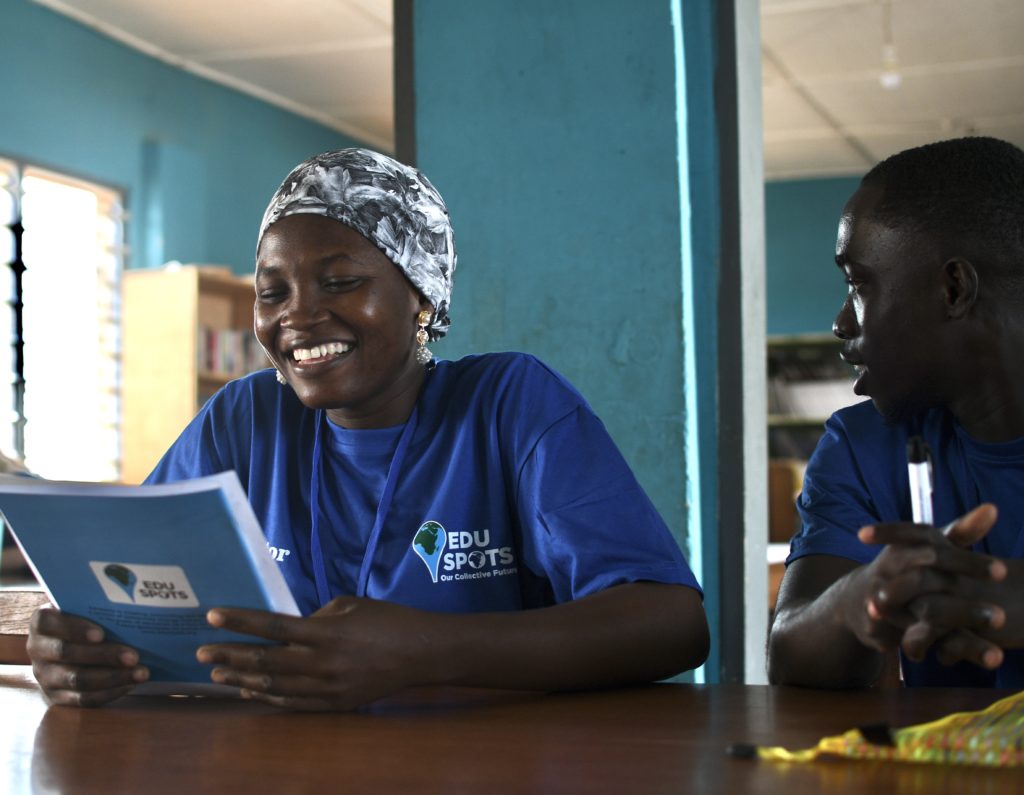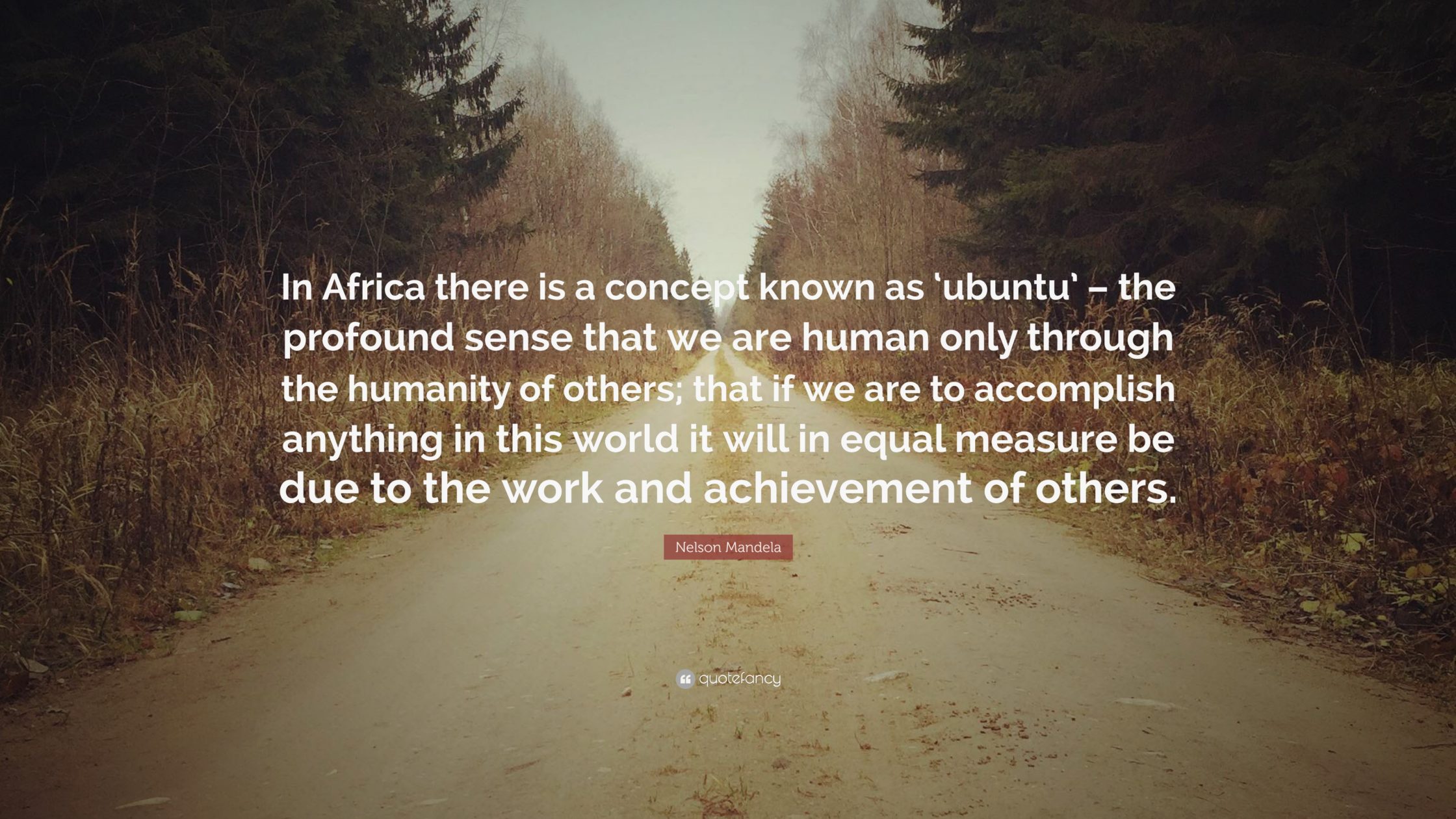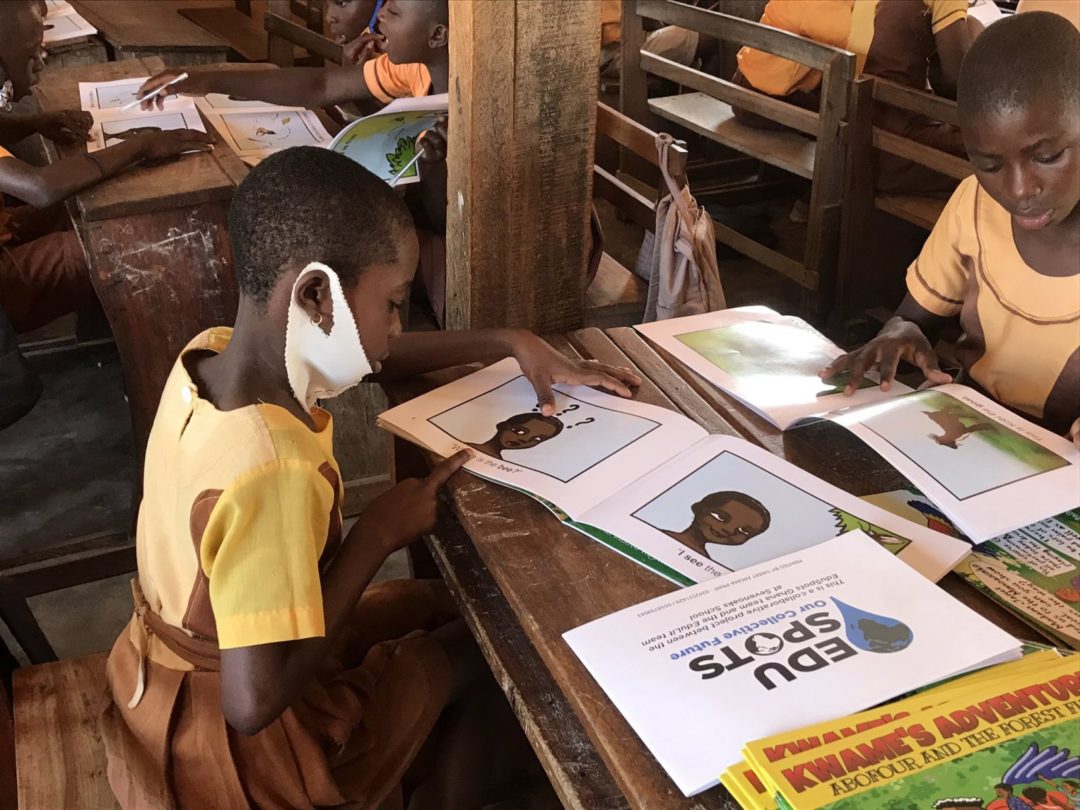Note that this has been updated from a post first published in 2021, on my previous blog.
‘Ubuntu’ is an African word used across the continent to describe a feeling of togetherness. Mbiti (1969, 125) describes the deep relationality of this view: ‘I am because we are, since we are therefore I am’.
Mudimbe (1998) suggests that western philosophies often take an uncontextualised ‘I’ as a starting point, with an ‘I’ being ‘defined in relation to the self and its inner being, rather than in relation to others’ (Mudimbe, 1988, 1). Certainly, the Cartesian foundational claim that “I think, therefore I am” (Descartes, 1637) seems to centre existence, and evidence for it, upon our own individual – rather than collective – thought.
Whilst creating North/South binaries can be unhelpful, I can see there may be a ‘western’ tendency to consider the world in relation to ourselves rather than understanding experiences through the lens of shared connections and relationships we have with others. Indeed, this existential difference likely comes across in the way I write this article.
Saying this, I also recognise that my life and educational understanding has been transformed by education networks and through drawing a sense of identity with a wider group. They have helped me to develop a stronger sense of purpose, build understanding of myself, others and society, and ultimately provide a consistent source of motivation towards shared goals.
Networks have certainly become increasingly popular within educational contexts; however, it is important to note that networks can exist in any field of society. They ultimately involve connecting people with similar areas of interest. Strong networks grow a life of their own, far beyond their leaders, with organic developments ongoing through emerging collaborative practice and communication.
I believe that writing and research, like community action, offers a stronger contribution when collaborative in its processes, and so in writing this article I have engaged my networks in some open self-reflective open research via various social media channels. This reflection, in itself, further binds our network through open communication.
What is a network?
Networks bring groups of people together, under the umbrella of a shared goal, building impact through relationships. They differ from groups or organisations in that they often bring people together from diverse groups and locations, and this contributes to their value. They are also set apart from movements in that they usually offer more structured forms of engagement and activity, rather than bringing people behind a vision more generally. Saying this, groups feed into networks, and networks often form can the structure needed for social movements to gain momentum.

It is also important to note that different types of networks exist – this article will explore education network which are connected to social and environmental aims, partly drawing from my own network leadership experience.
As one example of a large education network, the Teach for All network brings together 60 independent partner organizations working together accelerate the network’s progress, bound by a shared vision of ‘cultivating the leadership capacity’ needed to transform education opportunity for all. In this network, relationships exist at a leadership level (e.g. between leaders of the UK’s Teach First, Teach for America, Lead for Ghana) and at a membership level, with opportunities created for teaching fellows and alumni across the 60 countries to connect, engage and collaborate in pursuit of this shared aim.
By contrast, EduSpots is a small education and community action network, with over 200 volunteers in Ghana and the UK working towards a shared vision of ‘communities uniting to create the future they want to see, through education’, shortened to our slogan #OurCollectiveFuture. The EduSpots network feels more like an ever-evolving self-organising organism rather than anything limited by pre-determined aims, originally building from a small group of community library leaders, and connecting individuals in 50 communities today.
I don’t know enough about the origins of the Schools Community Action group linked to the UK Independent Schools Council which has existed since the 1980s. And this, I guess, is part of the beauty of networks, that leadership can change over time, new members join and others leave, and yet some sense of shared purpose often remains consistent. In our case, we are united by a desire to bring together like-minded teachers to share practice in fields relating to community action. The overall aims are two-fold: to advance the quality of our students’ educational engagement, and to extend our collective community impact.
These are just three examples and there are, of course, an increasing number of education networks taking advantage of social media as a space for collaboration and communication, including #EduTwitter and #WomenEd, who also have in-person meet-ups.
In Social Movements Donatella della Porta and Mari Diani (2020, 118) outline three main functions of social networks:
- They enable the ‘spread of information and opportunities for participation among people that may be interested in a cause.’
- They ‘affect the probability that people be socialised to specific values and develop interest in specific causes through the influence exerted on them by their personal connections.’
- ‘Contact and comparison with people in one’s circle may generate the social pressure that not only helps people to join but also provides them with the motivation to continue over time even when the costs of action are rising.’
Whilst there are some shared features and values of networks, the beauty of networks is that each may have different characteristics with members determining value in different ways.
Types of network members
‘It is the position that one occupies within a network that matters, rather than the mere fact of being involved in some kind of network.’
Porta and Diani (2019, 119)
Before we consider the value we might gain from being part of similar networks, it is vital to note that the value generated is dependent on the type of role you hold within a network.
Firstly, we have network leaders who play a role in the strategic formation of a network and in completing prescribed functional tasks relating to that network. Great network leaders are also usually highly active participants in the network, working to draw value from network activities and relationships as much (if not more than) other participants. Many networks indeed employ people with the specific function in mind of building a sense of community within networks.
We then have core participants: those who are actively engaged in activities and have close relationships with a number of other people central to that network. Some of these may also be network activators – people with an extremely strong affinity to the overall goal of the network and its working values, also offering the energy and time to bring others along in a journey of progress.
Alongside these more active members, most networks also have floaters – people who travel along in the journey, without fully engaging – and also bystanders – those who simply observe everything going on, without connecting emotionally or practically. We might also pick out network recipients – those who are keen to draw any resource support they can from the network, without contributing anything themselves, and network badge holders – those who are keen to exhibit their members of the network to people, without getting deeply involved. Finally, we can usually identify some network cynics – individuals who sign up to the network, but show some form of continued scepticism in relation to the network’s aims or values.
Perhaps many of us recognise that we have taken many of these roles within the different networks we have some form of membership with, and that people move between types of engagement, depending on other commitments and the activities of the network. It is certainly important for leaders to remember the multiplicity of engagement types, and to consider their strategy for membership to ensure strong connections within the group.
For those of you who want to catalyse social or environmental change, the evidence suggests that effective activists are usually ‘rich in relational resources’ – i.e., ‘well integrated in their communities, and strongly involved in a broad range of organisations, from political ones to voluntary associations and community groups’ (Porta and Diana, 2020, 121).
What benefits emerge from membership of a network?
As explored above, the benefits you draw from being part of a network, will most certainly depend on the way in which engage with a network. The five fields below were the most commonly cited areas of value, with the most active contributors gaining more of this value.
1. Motivation
‘Networks help you identify with other people with whom you share values, this ultimately empowers and/or motivates you to advance those values or causes.”
Ali Eliasu, previous EduSpots Head of STEM & Sustainability
Earlier, we explored the idea that networks tend to have a shared goal above; they also often have shared values. It may be that you are working in a community or organisational context where you feel only a partial alignment with values. Being part of a wider network, can enable you to become less emotionally fatigued by trying to operate within a value system which “just doesn’t quite fit”, instead giving space to feeling a sense of belonging with a wider group.
Gloria in Abofour noted that being part of a network also ‘brings about a sense of fulfilment when set up objectives are achieved.’ Again, whether or not you feel a sense of isolation within your own context, holding shared values with a wider networks enables you to share successes with a wider group. If you feel that you are also working towards a wider goal, this may also increase the sense of pleasure from meeting a target of some form, making you feel that your work has meaning in a wider societal context.
‘Confidence building. No handbook, specification, board or national targets in the area I/others lead in. Having a network of peers who sit in similar roles helps give confidence to adjust, tweak or share what is happening in school to achieve the best possible outcomes.’
Leighton Park Partnerships & Outreach
Alongside building confidence, being part of a network can also ensure that you do not operate within a silo, where you only respond to feedback and values set by a narrow group of managers or leaders. In education and community work, collaboration is always central to success, whether within a school context through embedding ideas within wider school frameworks, or within society more widely.
2. Resilience
“Encouragement is key as there are times you feel overwhelmed with everything happening around (especially when things are not happening as planned) and it helps to have a network of people with the same aim supporting each step of the way. Their availability alone relieves you and encourage you to try one more time.”
Anita, student & EduSpots volunteer, Gomoa Manso
Amjad Saleem offered a similar comment, noting the value of not only learning from peers but also ‘getting their support.’ This support may come in different forms, stretching from support with educational resources and planning to mental and emotional support. Leading any form of change can be challenging, with most people and communities resistant to change and many people unwilling to join a mission until there are signs of success or impact.
Being part of a group focused on similar aims can give you the courage to take stock, and try again. Certainly, I’ve become very demotivated at times when feeling isolated or moving through a stream of failed funding applications, particularly when getting to close to a high level of support and failing at the final hurdle; for me, it has been seeing the change being led at a local level that has given me the strength to continue and move beyond my own self-centred sense of disappointment or failure. Network members have picked me up and simply said – “disappointing, yes, but we go on, together”.
3. Broadening of perspectives
‘It enriches our experiences and awareness of aspects of people from different parts of the world and their culture.’
Nimatu, nurse and EduSpots volunteer, Savelugu
Networks set between diverse ethnic groups can also allow for the development of intercultural understanding, also bringing understanding of the lives of people from different walks of life. It might be difficult for individuals to gain this level of exposure if they lack the ability to leave their community, culture or social group.
“You get to interact with people from various walks of life and gain new experiences. It broadens your perspective on a wide range of activities when you interact with these people.”
Gloria Addae, nurse and EduSpots volunteer, Abofour
4. Problem-solving
“It is a chance to find diverse approaches to one single problem. You can collaborate on mutually beneficial projects. It gives an opportunity to find similarities in terms of the problem faced and responses.’
Amjad Saleem, Diversity, Inclusion and Protection Manager, Red Cross and Red Crescent Societies
Collaborative problem-solving, especially amongst diverse groups, will produce better solutions. Whilst it is important that solutions are founded upon a strong base of local understanding and leadership, taking ideas from different contexts can offer facilitate the development of a more creative solution, with proven impact in different settings offering a pre-existing base of knowledge to explore. Protecting local leadership does not mean reinventing the wheel each time we act or building only from local understanding.
“Sometimes you work on something and you feel it’s best but having someone look at it and contribute to it, makes it even better.”
Anita, student and EduSpots volunteer, Gomoa Manso
5. Resource Sharing
‘Sharing resources and opportunities among team members.’
Sadock, EduSpots volunteer, Gomoa Manso
Many networks offer forms of resource support to their members. This could be in the form of educational resources: lesson or session plans, ideas for engagement, games and more – or it could be more physical support in the form of books, IT equipment or even solar power. Individuals also value the sharing of opportunities which can be difficult to come by through mainstream media – indeed organisations often target networks holding shared aims and values to share job , volunteer and fellowship opportunities.
“Resources from EduSpots help students to understand abstract things. Being part of the network means you have access to resources like solar. The entire community has black-out but they are still able to learn and improve.”
Gloria Addae, nurse and EduSpots volunteer, Abofour

Concluding thoughts
Returning to the notion of ‘ubuntu’ where we started, perhaps this one comment is key in relation to networks for many, especially active participants and leaders:
‘It satisfies our need of belongingness.’
Nimatu, nurse & EduSpots volunteer, Savelugu, Northern Ghana
I believe participation in a network has genuinely transformed my worldview and how I frame myself in relation to others.
However, in addition to the sense of well-being, connectedness and a powerful sense of shared existence that networks can bring, I also believe it is impossible to create any educational idea of practical value for society without committing yourself to some form of collaborative space.
Whether you are a network leader, core participant, network activator, floater, bystander, passive recipient, badge holder or network cynic, I urge you to continue to reflect on what you can contribute to your networks – this may lead to greater individual and collective growth that you had imagined, as it has for me.
Next week’s post will focus on how we can strengthen all these areas of value among networks we are participants of. Do share any thoughts in advance via the comments below or privately and I will incorporate them.
To support the EduSpots network in their ‘Year of African Books’ fundraising aim for the year, please visit: https://www.justgiving.com/fundraising/eduspotsafricanbooks
Joy for the week ahead!
Each week, I will try to share something joyful for the week ahead! As a past xylophone player, this school performance of ‘Drive’ always makes me smile! Happy bank holiday!
References
Descartes, Rene (1960). Discourse on Method and Meditations. Laurence J. Lafleur (trans). New York: The Liberal Arts Press.
Mbiti, J.S. (1969) African Religions and Philosophy. London: Heinemann.
Mudimbe, V. Y. (1988) Liberty in African and Western Thought. Washington DC: Institute for Independent Education.
Portia, D.D and Diani, M(2020). Social Movements. Wiley Blackwell.


